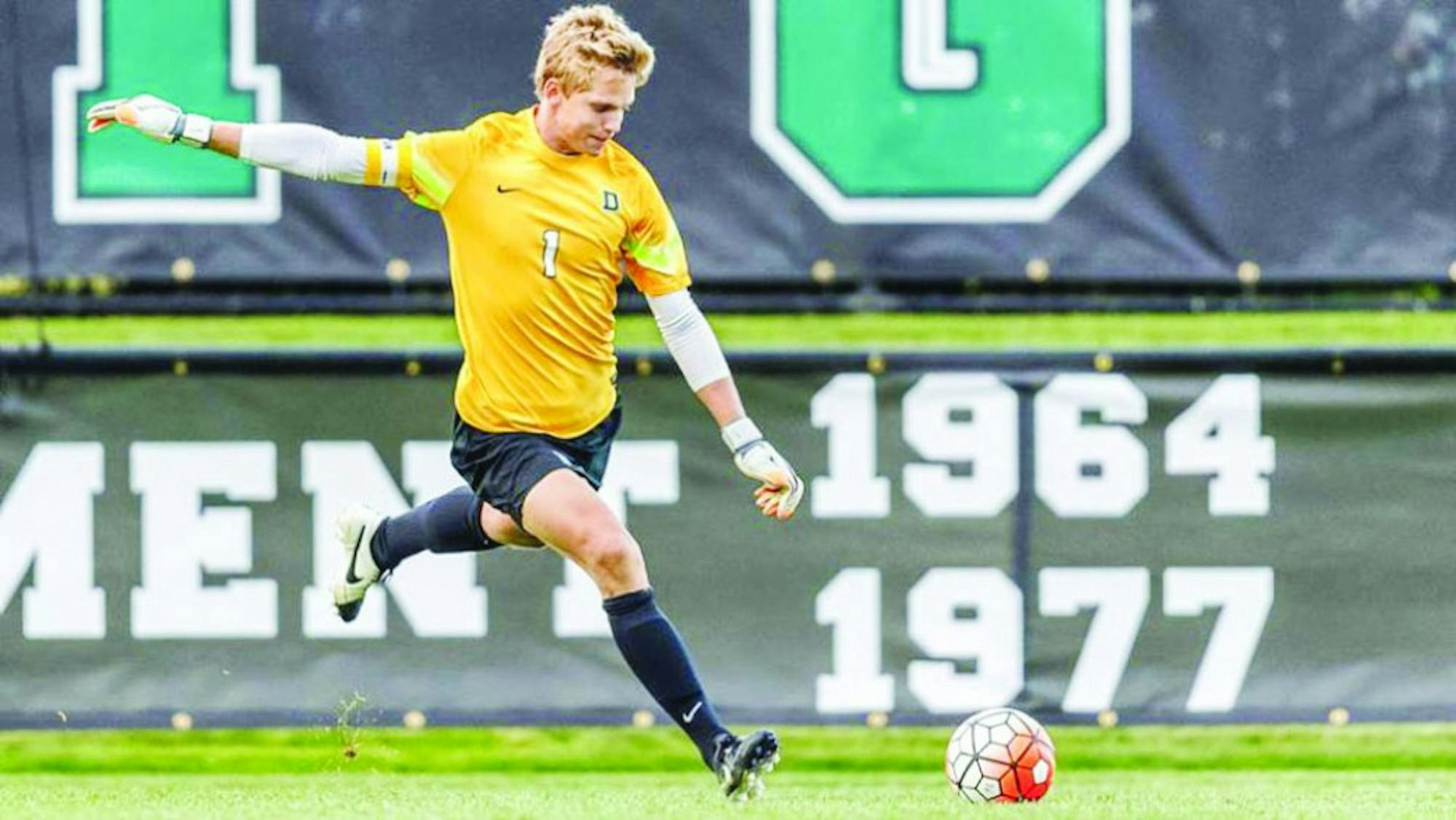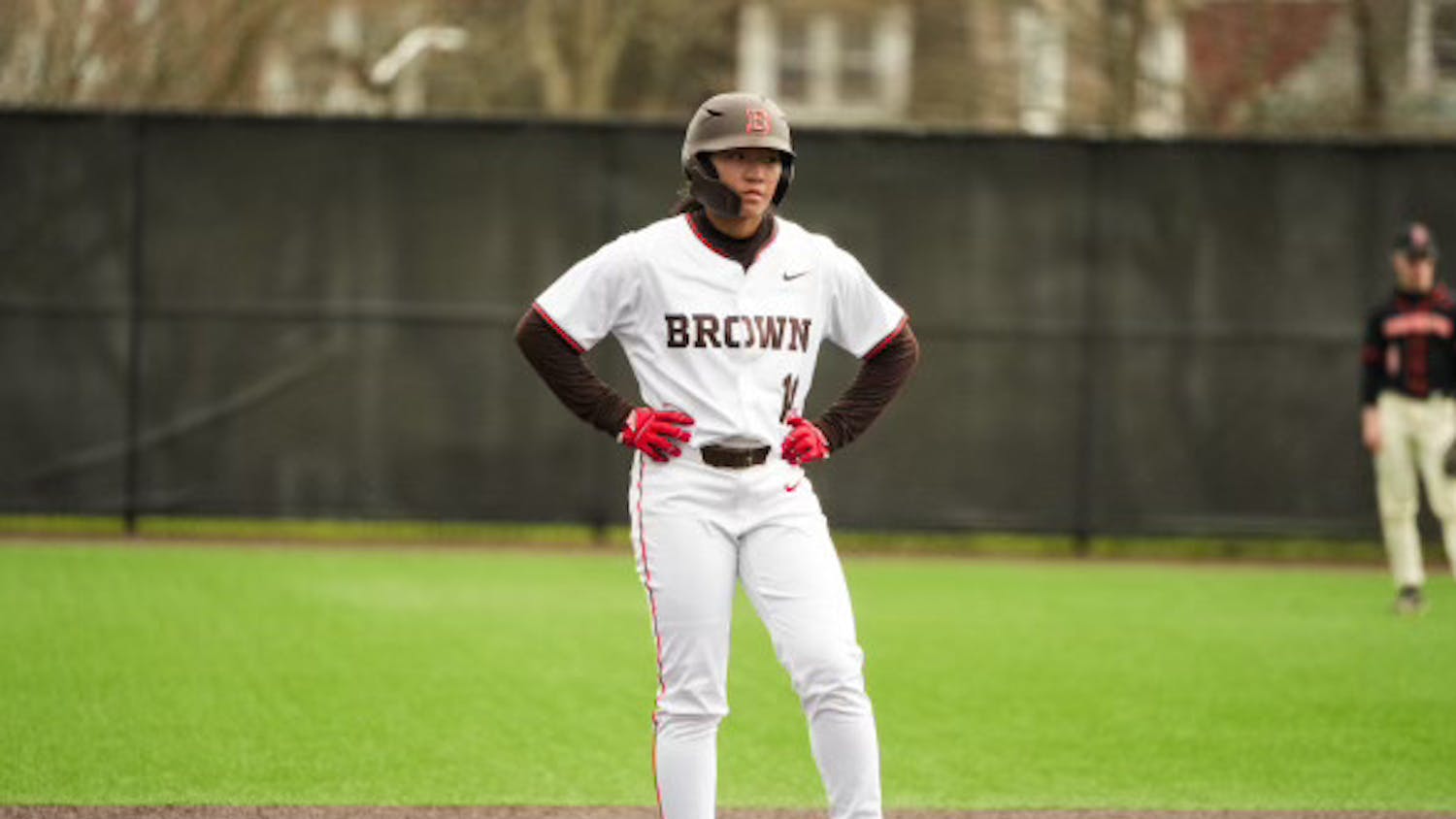Each week The Numbers Game will break-down one Dartmouth sports statistic.
0.62: Stefan Cleveland ’16’s goals-against average in 2015
Co-captain of the Dartmouth men’s soccer team Cleveland had a magical 2015 campaign. For the second consecutive year, he helped propel the Big Green to an Ivy League Championship. Individually, Cleveland won the Ivy League Defensive Player of the Year honor and was later named to the First Team All-Ivy squad for the second time in his career.
The Dayton, Ohio native started 14 games for the Big Green and recorded an impressive 9-4-1 record in those contests. He made 58 saves over the course of the season and recorded a .866 save percentage, while also recording nine shutouts on the year.
Even more telling of Cleveland’s utter dominance in net was his 0.62 goals-against average in his 2015 campaign, improving this figure from 0.97 in 2014. As far as goalies are concerned, this statistic is the best way to judge their impact. After all, a goalie’s main objective is to simply allow as few goals as possible over the course of a contest.
For people who may be unfamiliar with the statistic, it is obtained by dividing the total number of goals a goalie has allowed for the season by the number of games played. In Cleveland’s case he played in 14 games last year and gave up nine total goals. Ostensibly, several other factors independent of goalie performance can affect a goalie’s goals-against average including defensive performance, pace of play and the team’s overall philosophy. However, at the end of the day, its simplicity makes it the best statistic for comparing goalies from team to team.
If we compare Cleveland’s goals-against average to other Ivy League goalies over the course of this past season, Dartmouth’s netminder stands heads and shoulders above his contemporaries. The second leading Ivy League goalkeeper in this category who saw at least 500 minutes of play was Columbia’s Kyle Jackson, posting a 0.86 goals-against average. Every other regular Ivy League keeper gave up on average more than one goal per game. Essentially, Cleveland allowed .21 fewer goals per game than the next closest Ivy League keeper and nearly .40 fewer goals than the all other Ivy goalies that played for significant stretches throughout the 2015 season.
Although Cleveland’s edge may appear marginal, soccer’s relatively low scores mean incremental differences as far as this statistic have a tremendous impact on the game. In terms of the whole country, Cleveland’s senior season ranked seventh out of all Division 1 goalies as far of goals-against average.
Let’s now look at some of the best professional goalies in the world’s goals-against average to better frame Cleveland’s number. In the current 2015-2016 season, Joe Hart of Manchester City has amassed a 0.96 goals-against average while Arsenal’s Petr Cech has given up on average exactly one goal per game. Even in terms of two of the most decorated and respected keepers in the world from the Premiere League, Cleveland’s 0.64 mark from this past year still remains extremely impressive.
With Cleveland graduating this year, the Big Green will be hard-pressed to replace arguably its best player. The team will need solid goalie play if it hopes to three-peat as Ivy League Champions. Head coach Chad Riley, who will be entering his fourth season in Hanover, has already announced that the team is bringing in keeper Henry Stusnick ’20 as part of the program’s new recruiting class. Stusnick joins a roster that already includes goalies James Hickok ’17 and Max Lurie ’19 as the trio will try to fill the large shoes left by Cleveland next season.



